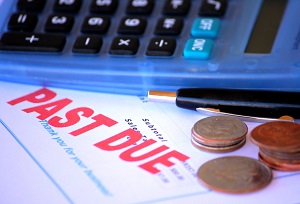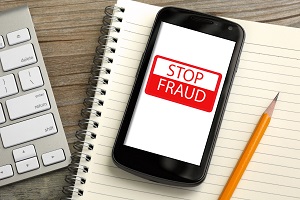The financial responsibilities of HOA boards are far-reaching and wide. While some of these responsibilities are obvious, others may surprise you. Let’s break down the many financial duties you, as a board member, must fulfill.
Remember These Financial Responsibilities of HOA Boards
As a member of an HOA board, you are representing your entire community. You should know the responsibilities that come with your position. Chief among these is the HOA board financial responsibility you have to your community. Homeowners are paying to ensure their neighborhood is running efficiently. They place their trust in the board to optimize their dues. Whether you are the treasurer or another board member entirely, here are the HOA board financial responsibilities you must carry out.
1. Make Collection Easy
Your HOA rules and regulations will determine the frequency of assessment (payment) collection. It should say in your HOA governing documents whether you must collect dues monthly, quarterly, or annually. There are many ways to collect your dues. You should choose a method that is convenient for your members, whether it be in person, with a dropbox, or digitally. Many communities choose to hire a management company to help with this.
2. Handle Delinquent Payments Fairly
 A common problem board members run into is a delinquent payment. A good first step in these cases is to reach out to the resident and understand their situation. Working with the resident can help get you through this dilemma smoothly. If this option does not work, check your HOA bylaws for additional actions you can take.
A common problem board members run into is a delinquent payment. A good first step in these cases is to reach out to the resident and understand their situation. Working with the resident can help get you through this dilemma smoothly. If this option does not work, check your HOA bylaws for additional actions you can take.
In many cases, you can warn the resident with a lien. This is a legal claim that can hinder the homeowner’s ability to sell or refinance their home. If a resident continues to deny payments this lien can force foreclosure to satisfy the debt. If all else fails, the final option would be to take the case to small claims court. Throughout this difficult process, it is important to stay firm, fair, and diligent.
3. Know What Assessments Are Used For
Homeowners associations are non-profit organizations. This means you can only use dues for the benefit of the community. Allocation of the funds collected from residents depends on the HOA’s budget. This budget should include ongoing maintenance, community insurance, reserve, and contingency funds.
Many communities also allocate funds for hiring a management company. The type of management company will determine the focus of their services. The most common, full-service management companies will assist with bookkeeping, collections, maintenance, and violations enforcement and more. Others offer a cheaper alternative by focusing only on specific services such as financial management. The needs of your community will determine the company you ultimately choose.
4. Keep Accurate Records
 It is a financial responsibility of HOA board members to act as good stewards of association funds. That is difficult to do without proper record keeping.
It is a financial responsibility of HOA board members to act as good stewards of association funds. That is difficult to do without proper record keeping.
The consequences of bad record-keeping can negatively affect your association. Legal issues can arise from missed payments, disorganization causes a loss of documents or future ramifications from bookkeeping negligence.
The first thing you must do is decide on an accounting method. There are three, of which accrual is the only GAAP-certified and largely considered the best. After choosing a basis of accounting, make sure to religiously record all financial transactions. This will allow you to create accurate financial statements, which, in turn, will help you make long-term financial decisions.
5. Communicate Your Progress
 In a homeowners association, it is important to be transparent with your community. In fact, it is one of the most crucial financial responsibilities of HOA boards. Residents entrust you with their assessments, so they have a right to know what it is being used for.
In a homeowners association, it is important to be transparent with your community. In fact, it is one of the most crucial financial responsibilities of HOA boards. Residents entrust you with their assessments, so they have a right to know what it is being used for.
Communicating information such as an increase in dues, maintenance issues, solutions, and even community events will give residents a better understanding of their association. When residents have more knowledge about their community, they are more confident in the board leading them. Transparency combats suspicions and mistrust, which can destroy your association from within.
6. Prepare a Sound Budget
One of the financial responsibilities of HOA leaders is to prepare a budget for the incoming year. While it may sound like an easy task, there is much more to it than just estimating the cost of maintenance and repairs. As a board member, you must do your research on market trends and take historical data into account. If you notice an increase in vendor services each year, take that into consideration for this coming year. Your HOA budget is important in that it determines how much to charge homeowners in dues.
7. Plan for Your Reserves
Maintenance expenses usually take from the HOA’s operating fund. For replacements and contingencies, look to your HOA’s reserves. A reserve fund must maintain the right level to ensure all future and emergency costs are covered. This way, you can avoid charging homeowners a special assessment. To determine the right reserve level, your HOA must conduct an HOA reserve study. You can typically outsource this task, especially if you have no experience handling such cases.
8. Make Financial Statements Available
In line with transparency in your HOA, you must make financial statements readily available to all homeowners. Usually, HOAs hold annual meetings at the start of the year. This is the right time to present financial statements or reports from the year prior. Of course, do not show any reports that have sensitive or confidential information. For instance, an Account Delinquency Report must remain for board members’ eyes only. Standard financial statements such as the balance sheet and income statement are fine, though.
9. Avoid Fraud
 It might seem like this goes without saying, but you would be surprised at the number of fraud incidents that occur within HOAs. Board members must fulfill their roles with transparency and integrity. A good board member requires no prompting — he/she just knows to take the moral high ground. One of the ways you can prevent fraud is to consistently check HOA financial reports and bank statements. If you sense something out of the ordinary or find discrepancies, consult your fellow board members or manager.
It might seem like this goes without saying, but you would be surprised at the number of fraud incidents that occur within HOAs. Board members must fulfill their roles with transparency and integrity. A good board member requires no prompting — he/she just knows to take the moral high ground. One of the ways you can prevent fraud is to consistently check HOA financial reports and bank statements. If you sense something out of the ordinary or find discrepancies, consult your fellow board members or manager.
Stay on Top of Your HOA Financial Responsibility
A well-managed homeowners association is led by capable leaders. As a member of your HOA board, you shoulder many burdens. One of the most challenging tasks you will encounter is managing HOA finances. But, if you fulfill the financial responsibilities of HOA boards, you can look forward to a smoothly-run organization.
Most HOA boards find it difficult to accomplish these tasks alone. As a result, they turn to HOA management companies for help. If you wish to do the same but for a fraction of the cost, contact a remote HOA management company like us.
RELATED ARTICLES:
- How Should The Board Deal With Delinquent HOA Dues
- How Much Does An HOA Audit Cost?
- 5 Questions To Ask When Hiring HOA Vendors

